Londinium Consort
New Elizabethan Award
Winners Concert (New Elizabethan Award 2025)
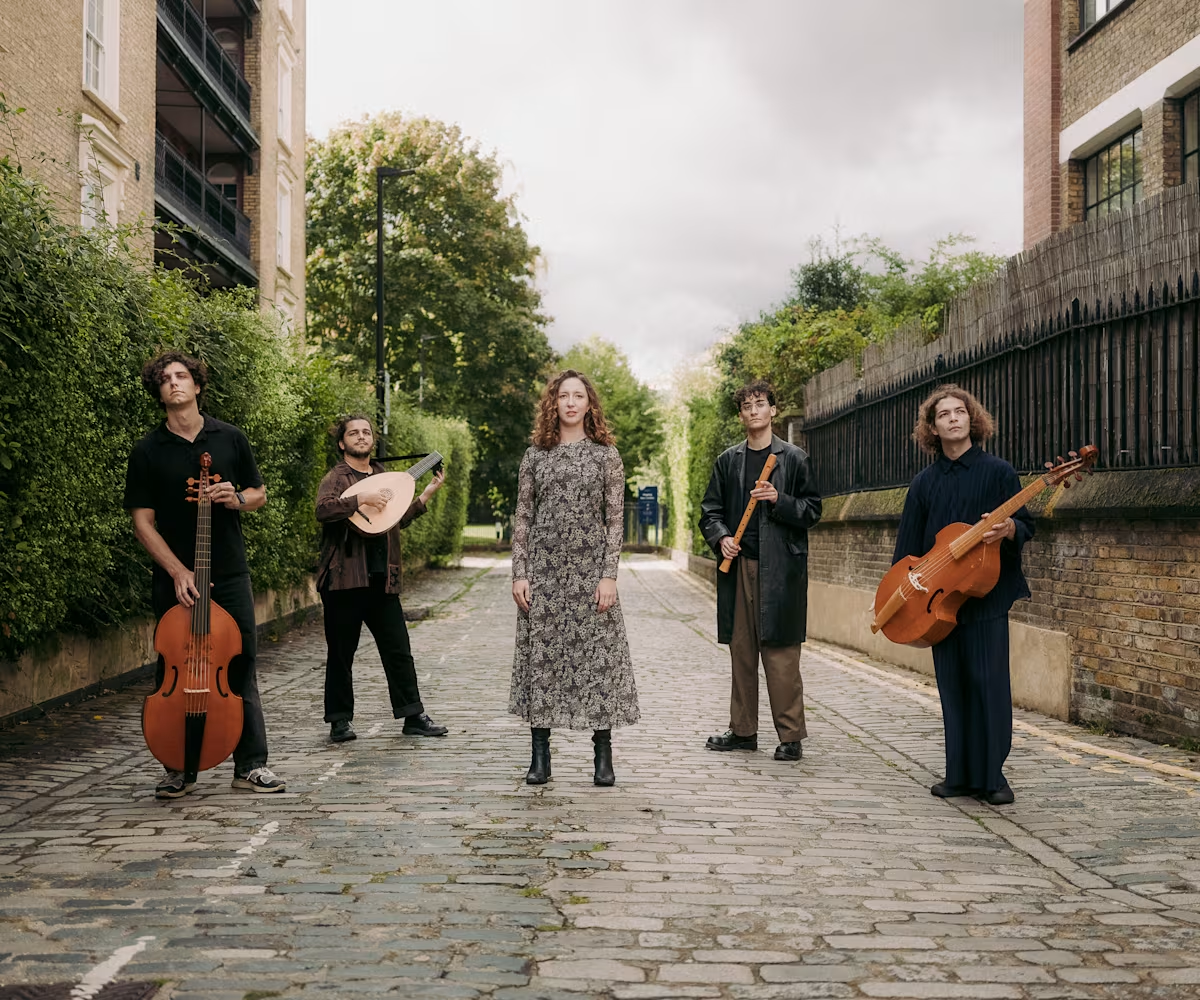
lines are blurred as these ideas appear in both their modern and historical contexts.
The opening of our set has been inspired by Will yow Walke the Woods soe Wylde, a Tudor song that is quoted by Dowland in his enduringly popular Can she excuse my wrongs. Using an initial phasing motif, we aim to capture the frantic sounds of the city, arriving eventually at the solitude of nature, where exile becomes a refuge. Can she excuse my wrongs was first published in 1597. With text attributed to Robert Devereux, the second
Earl of Essex, we hear a personal plea from a courtier exiled in affection from his patroness,
Elizabeth I.
Some of the most talented English musicians of the Renaissance chose a life of exile abroad, such as John Dowland and William Brade. Dowland’s The King of Denmark’s Galliard appears in the 1604 publication of Lachrimae, or Seven Teares. Dowland worked in the court of King Christian IV from 1598–1606, and the King’s interest in
music is reflected not only in the high salary paid to Dowland, but also reciprocated by Dowland’s grand galliard dedicated to him. William Brade, who was also employed in the Danish court, was dismissed at the same time as Dowland (possibly in relation to his reputation as a “wanton, mischievous fellow”). A talented violinist, his surviving catalogue, mostly of dances, is a feast for strings. His Scottish Dance is a lively, folk inspired tune, which nods to the European taste for music from foreign shores; this piece was published in a collection of dances in Germany in 1617 composed for the court at Hamburg.
These excellent composers were influenced by their time abroad; their travel impacted their playing and their compositional style, and allowed dissemination of musical ideas from around Europe, in turn impacting English musical style. Inspired by this rich tradition of player-composers, we have commissioned a world premiere to award winning composer Owen Spafford. ‘Threshold’, dedicated to Londinium Consort, is a song that is deeply routed in English folk music and the lyric is about immigration and have to leave your land. While the period of the Renaissance is recognised as a time of profound cultural rebirth, this piece discusses the more intimate new beginnings experienced by many immigrants, and the impact of those stories of personal evolution on our culture, just as in Dowland and Brade's time.
 Early Music at Wigmore Hall
Early Music at Wigmore Hall Sat, 1 February 2025
Sat, 1 February 2025 Wigmore Hall
Wigmore Hall 1:00pm
1:00pm £18
£18
Full Event Details

Our programme today blends repertoire from Elizabethan London with contemporary compositions, creating moments of liminality where the two worlds meet, are reimagined, and become something altogether new. Each work in today’s programme explores a theme of journeys: how do these transitions help us embark on quests for meaning? From stories of relationships, exile, and immigration, to the sounds of commuting in the city, historical
lines are blurred as these ideas appear in both their modern and historical contexts.
The opening of our set has been inspired by Will yow Walke the Woods soe Wylde, a Tudor song that is quoted by Dowland in his enduringly popular Can she excuse my wrongs. Using an initial phasing motif, we aim to capture the frantic sounds of the city, arriving eventually at the solitude of nature, where exile becomes a refuge. Can she excuse my wrongs was first published in 1597. With text attributed to Robert Devereux, the second
Earl of Essex, we hear a personal plea from a courtier exiled in affection from his patroness,
Elizabeth I.
Some of the most talented English musicians of the Renaissance chose a life of exile abroad, such as John Dowland and William Brade. Dowland’s The King of Denmark’s Galliard appears in the 1604 publication of Lachrimae, or Seven Teares. Dowland worked in the court of King Christian IV from 1598–1606, and the King’s interest in
music is reflected not only in the high salary paid to Dowland, but also reciprocated by Dowland’s grand galliard dedicated to him. William Brade, who was also employed in the Danish court, was dismissed at the same time as Dowland (possibly in relation to his reputation as a “wanton, mischievous fellow”). A talented violinist, his surviving catalogue, mostly of dances, is a feast for strings. His Scottish Dance is a lively, folk inspired tune, which nods to the European taste for music from foreign shores; this piece was published in a collection of dances in Germany in 1617 composed for the court at Hamburg.
These excellent composers were influenced by their time abroad; their travel impacted their playing and their compositional style, and allowed dissemination of musical ideas from around Europe, in turn impacting English musical style. Inspired by this rich tradition of player-composers, we have commissioned a world premiere to award winning composer Owen Spafford. ‘Threshold’, dedicated to Londinium Consort, is a song that is deeply routed in English folk music and the lyric is about immigration and have to leave your land. While the period of the Renaissance is recognised as a time of profound cultural rebirth, this piece discusses the more intimate new beginnings experienced by many immigrants, and the impact of those stories of personal evolution on our culture, just as in Dowland and Brade's time.
Venue Details & Map

Location
Wigmore Hall
36 Wigmore Street, London W1U 2BP
Related upcoming events

New Year's Eve Gala
The English Concert
 Wed, 31 December 2025
Wed, 31 December 2025 Wigmore Hall, London
Wigmore Hall, London 7:00pm
7:00pm £18 - £60
£18 - £60 Early Music at Wigmore Hall
Early Music at Wigmore Hall

Purcell, Handel, Schubert, Nico Muhly and more
Iestyn Davies
 Tue, 13 January 2026
Tue, 13 January 2026 Wigmore Hall, London
Wigmore Hall, London 7:30pm
7:30pm £18 - £50
£18 - £50 Early Music at Wigmore Hall
Early Music at Wigmore Hall
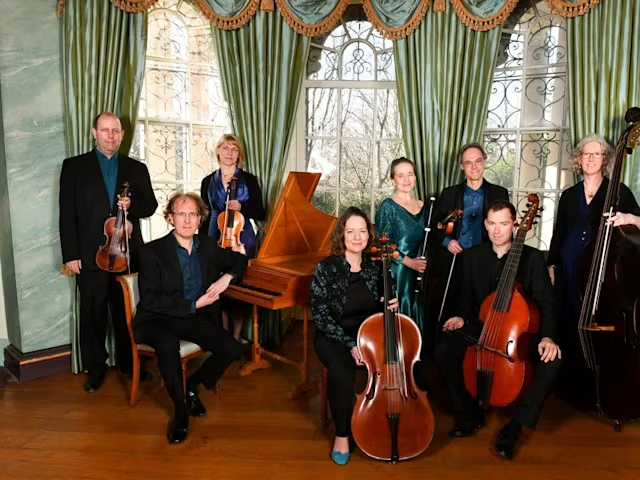
Mozart in Mannheim
London Handel Players
 Thu, 15 January 2026
Thu, 15 January 2026 Wigmore Hall, London
Wigmore Hall, London 7:30pm
7:30pm £18 £27 £33 £43 £50
£18 £27 £33 £43 £50 Early Music at Wigmore Hall
Early Music at Wigmore Hall
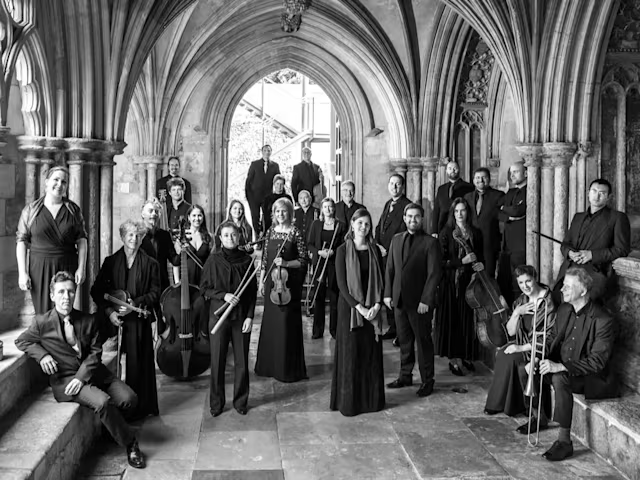
Just Married
Vox Luminis
 Mon, 19 January 2026
Mon, 19 January 2026 Wigmore Hall, London
Wigmore Hall, London 1:00pm
1:00pm £18 (£16 concessions)
£18 (£16 concessions) Early Music at Wigmore Hall
Early Music at Wigmore Hall
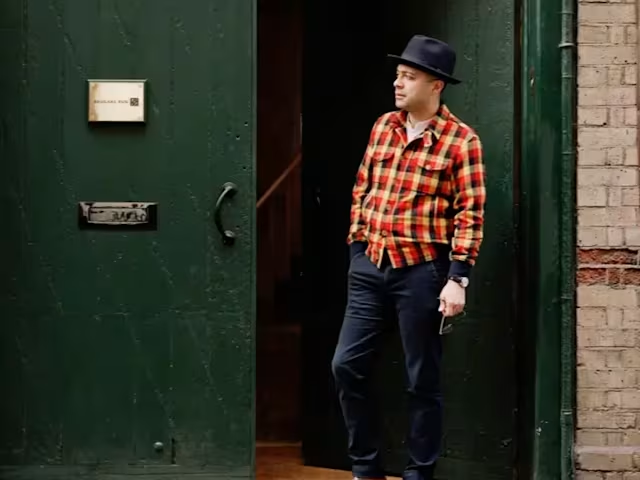
Scarlatti Focus
Mahan Esfahani
 Sat, 24 January 2026
Sat, 24 January 2026 Wigmore Hall, London
Wigmore Hall, London 7:30pm
7:30pm £18 - £40 (£5 Under-35s)
£18 - £40 (£5 Under-35s) Early Music at Wigmore Hall
Early Music at Wigmore Hall
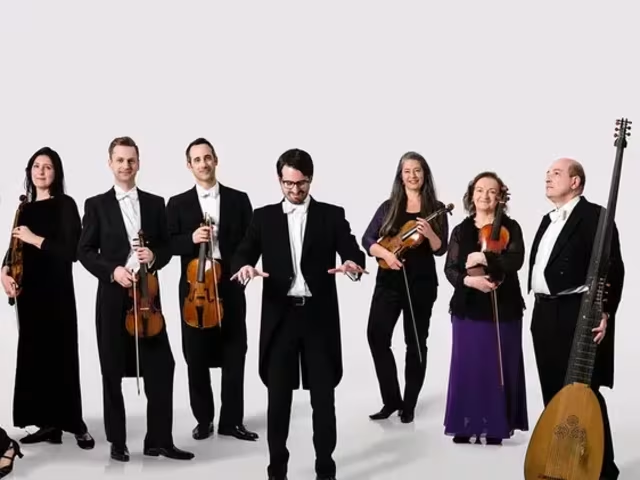
Corelli, Handel and Vivaldi
The English Concert
 Wed, 28 January 2026
Wed, 28 January 2026 Wigmore Hall, London
Wigmore Hall, London 7:30pm
7:30pm £18 - £50
£18 - £50 Early Music at Wigmore Hall
Early Music at Wigmore Hall
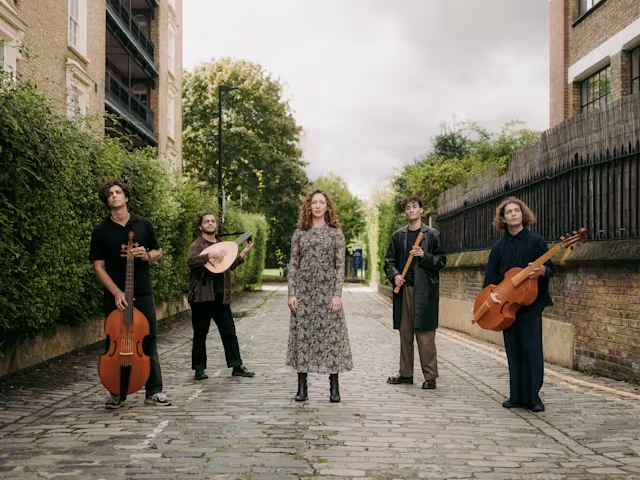
Crossing Paths
Londinium Consort
 Fri, 6 February 2026
Fri, 6 February 2026 The Octagon Chapel, Norwich
The Octagon Chapel, Norwich 6:30pm
6:30pm £8
£8- ➕1 other performance
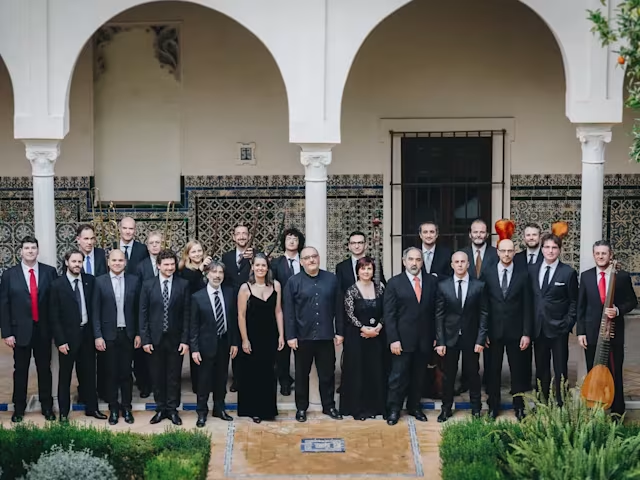
Monteverdi Madrigals
Concerto Italiano
 Sat, 14 February 2026
Sat, 14 February 2026 Wigmore Hall, London
Wigmore Hall, London 7:30pm
7:30pm £18 - £40
£18 - £40 Early Music at Wigmore Hall
Early Music at Wigmore Hall
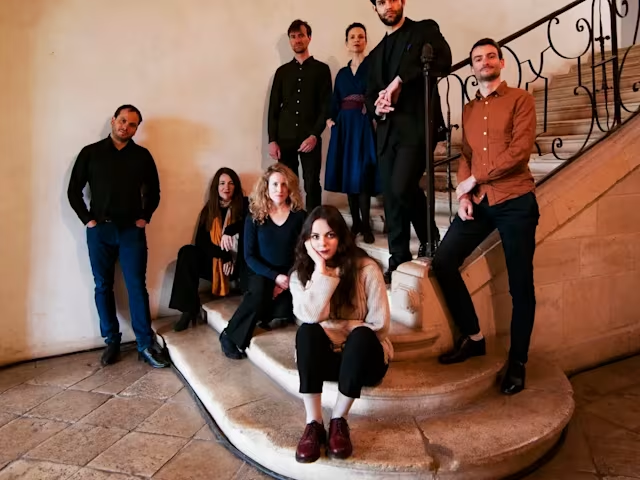
Lighten mine eies
Ensemble Près de votre oreille
 Tue, 17 February 2026
Tue, 17 February 2026 Wigmore Hall, London
Wigmore Hall, London 1:00pm
1:00pm £18 (£16 concessions)
£18 (£16 concessions) Early Music at Wigmore Hall
Early Music at Wigmore Hall
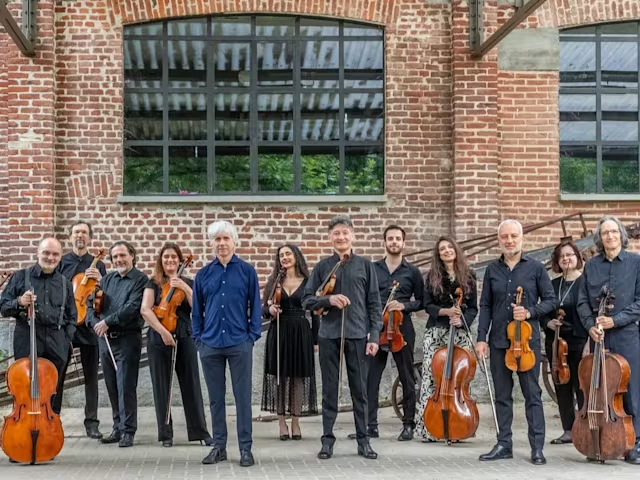
La Morte della Ragione
Il Giardino Armonico
 Wed, 18 February 2026
Wed, 18 February 2026 Wigmore Hall, London
Wigmore Hall, London 7:30pm
7:30pm £18 - £40
£18 - £40 Early Music at Wigmore Hall
Early Music at Wigmore Hall
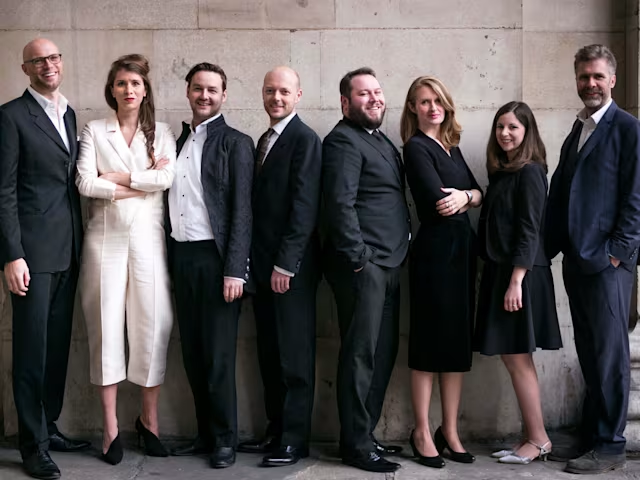
George Jeffreys & the Birth of the English Baroque
Solomon's Knot
 Tue, 24 February 2026
Tue, 24 February 2026 Wigmore Hall, London
Wigmore Hall, London 7:30pm
7:30pm £18 - £50
£18 - £50 Early Music at Wigmore Hall
Early Music at Wigmore Hall

Marianne Crebassa sings Mozart
The Mozartists
 Thu, 26 February 2026
Thu, 26 February 2026 Wigmore Hall, London
Wigmore Hall, London 7:30pm
7:30pm £18 - £50
£18 - £50 Early Music at Wigmore Hall
Early Music at Wigmore Hall

Il trionfo del Tempo e del Disinganno
La Nuova Musica
 Sat, 28 February 2026
Sat, 28 February 2026 Wigmore Hall, London
Wigmore Hall, London 7:00pm
7:00pm £18 - £50
£18 - £50 Early Music at Wigmore Hall
Early Music at Wigmore Hall
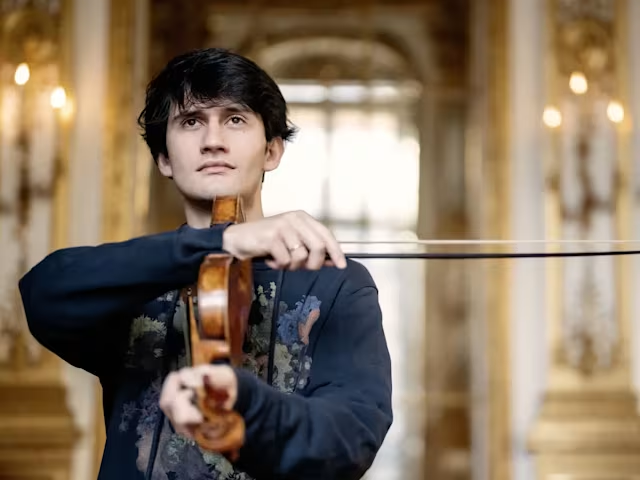
Bach, Vitali and Vivaldi
Théotime Langlois de Swarte
 Tue, 3 March 2026
Tue, 3 March 2026 Wigmore Hall, London
Wigmore Hall, London 7:30pm
7:30pm £18 - £40
£18 - £40 Early Music at Wigmore Hall
Early Music at Wigmore Hall
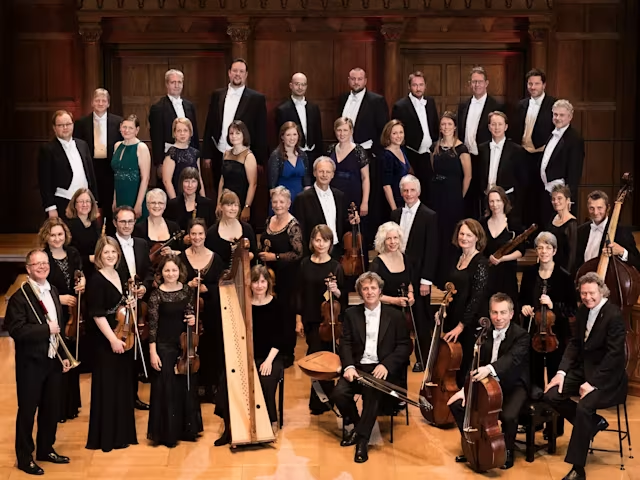
Bach and Byrd
The Sixteen Choir
 Thu, 5 March 2026
Thu, 5 March 2026 Wigmore Hall, London
Wigmore Hall, London 7:30pm
7:30pm £18 - £60
£18 - £60 Early Music at Wigmore Hall
Early Music at Wigmore Hall

